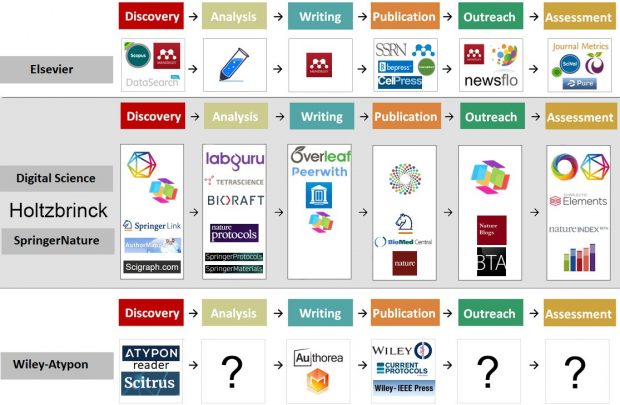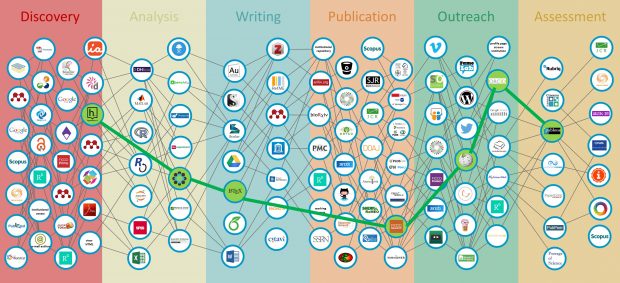OK, here we are, it was a nightmare from the preprint in April 2021 with basically 100 emails until the publication in March 2023.
OK, here we are, it was a nightmare from the preprint in April 2021 with basically 100 emails until the publication in March 2023.
Springer Nature continues its focus on tailored solutions for academics with acquisition of researcher-created writing tool, TooWrite (14 Feb 23)
Developed by researchers for researchers, the TooWrite platform streamlines and simplifies scientific writing by guiding researchers through the process as if they were answering a questionnaire. In addition, expert how-to guides are attached to each question, supporting researchers as if they had an editor by their side. By structuring it in this step by step way, researchers’ time is freed up by making the writing process more efficient.
the comment that hits the nail
At some point there will be nothing left to buy. But then there will be no way out for researchers anymore from ready-made workflows that suck them dry at every stage of the research life cycle.

the strategy is from “cradle to grave”

in the original full version

Capitalized value? Personalized PDFs? DFG warning? User tracking? Forced marriage? It is incredible how scientific publishers are expanding their business. Here is a new paper
This essay develops the idea of surveillance publishing, with special attention to the example of Elsevier. A scholarly publisher can be defined as a surveillance publisher if it derives a substantial proportion of its revenue from prediction products, fueled by data extracted from researcher behavior. … The products’ purpose, moreover, is to streamline the top-down assessment and evaluation practices that have taken hold in recent decades. A final concern is that scholars will internalize an analytics mindset, one already encouraged by citation counts and impact factors.
Sure, this already happens as some committees look only at lists of impact factor and grant sums. In the near future, they will switch to Elsevier`s “human ressources” management system Interfolio to compare candidates.
Founded in 1999, Interfolio supports over 400 higher education institutions, research funders and academic organizations in 25 countries, and over 1.7 million academic professionals and scholars. Theo Pillay, General Manager of Research Institutional Products, Elsevier, said: “Interfolio has a proven track record in supporting the academic community, thanks to its deep understanding of faculty needs, institutional workflows, research assessment and academic careers, combined with its agile technology and experienced leadership.
Back to the original article
the publishing giants have long profited off of academics and our university employers—by packaging scholars’ unpaid writing-and-editing labor only to sell it back to us as usuriously priced subscriptions or article processing charges (APCs). That’s a lucrative business that Elsevier and the others won’t give up. But they’re layering another business on top of their legacy publishing operations, in the Clarivate mold. The data trove that publishers are sitting on is, if anything, far richer than the citation graph alone.
Data is the new oil, indeed.